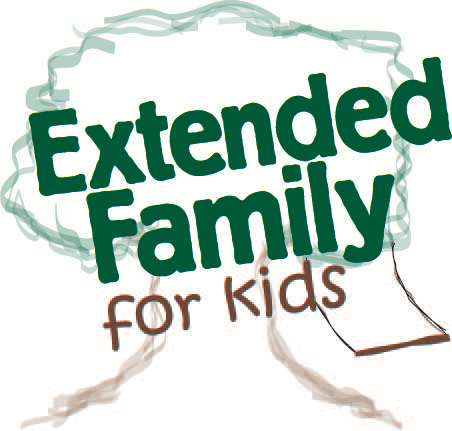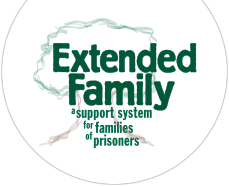For Kids - Getting Started
You will need the Extended Family for Kids Curriculum Guide
You can order the Extended Family for Kids Curriculum Guide in our On-line Store, or click here to download an EFK Curriculum Guide Order Form.
The Extended Family for Kids Curriculum Guide contains everything you need to lead your own EFK program for students in grades 3 through 12.
- Plans for forming an EFK group in your school, community center, or church, including student enrollment tips.
- EFK letters and flyers for parents and guardians.
- Detailed Program Leader instructions for 9 sessions. Visit our Program Summary page for session details.
- Student Feedback Forms for collecting data on how the goals of each lesson were met. This data can be used for both internal and grant reports!
- EFK student handouts for each session.
- Instructions on the best way to start a group in your community.
- Author notes explaining specific dynamics of an activity and pointing out areas of caution.
The Extended Family for Kids Curriculum Guide has been distributed in 14 states, to both faith-based and community-based organizations.
Click here for the Cebellos EFK Impact Study, to learn how an EFK group brought students’ grades up, and disciplinary referrals down.
When available, attend an Extended Family for Kids Training Workshop
Extended Family for Kids Training Workshops are taught by Laure Clemons, author of Extended Family for Kids. Laure draws on her years of leading Extended Family for Kids programs to share real-life experiences. She addresses potential challenges that Program Leaders may face, and provides solutions drawn from leading hundreds of students through EFK.
In an EFK Training Workshop, you will
- Receive the Extended Family for Kids Curriculum Guide
- Experience hands-on training in all 9 sessions of Extended Family for Kids
- Try out the same activities your EFK group will experience under your leadership
- Practice effective ways of communicating the need for EFK to administrators, parents, and educators
- Receive customized instruction on starting and leading EFK groups for the specific needs of your community
- Learn how to implement the program in many types organizations with flexible schedules
- Meet others who are starting and leading EFK workshops in your state
- Earn Continuing Education Credits for your professional development
To schedule a workshop in your area, call 256-927-3038, or e-mail cyndi@extendedfamilyhelp.org. Visit our Kids Workshop page for more details.
This training is not required to lead EFK. The EFK Training Workshop will greatly enhance your ability as a Program Leader, and give you more tools for making an impact on the students in your EFK group. A school counselor shares her EFK Workshop experience on our Kids Workshop page.
Introduce Extended Family for Kids to your community
Communicate with Program Hosts and Sponsors
- Discuss the Extended Family for Kids program with the administration of your organization.
- Decide where a group would meet and what funds you will have for materials such as markers and handouts copied from the EFK Curriculum Guide.
- Find out if there are any additional guidelines to be followed based on your organization’s policies, such as background checks for EFK Program Leaders.
Communicate With Parents and Guardians
Give parents and guardians information about the Extended Family for Kids program ahead of time. An “Introduction to EFK” letter and flyer are in the EFK Curriculum Guide. Some organizations obtain guardian permission for a child to participate. Sample permission forms are also supplied.
Communicate With Kids
- Post flyers – an EFK flyer is in the EFK Curriculum Guide
- Give a presentation to a group of children before the program starts. Explain that EFK gives kids with an incarcerated family member new tools for successful living. (Don’t give details on sessions – part of the EFK fun is all of the suprises!) Make it clear that this group is open only to students with a connection to incarceration. Kids will understand that it is a special group to be in. By introducing the program to an entire group you will not single out children who need EFK, and you will reach many that need the program but have not yet been identified.
- Talk to children one-on-one. Let kids know that this is available and give them a confidential way to sign up.
- Speak to child advocacy agencies, churches, grandparent support groups, and community clubs to educate the community about EFK and ask for student referrals
- Work with school counselors for referrals; this method is crucial when starting an EFK group in a school setting.
Extended Family for Kids, © 2008 Extended Family.

Letter from Dallas P., 8th Grade, Extended Family for Kids group member

Out of all of the activities we have done this year none of them were useless, every single one of the activities were helpful. I believe though that the two most helpful activities to me were the “Stress Busters” activities, and the “I Don’t Have to Do Their Time” activity.
I just hope to encourage many more kids to become involved.
8th Grade Student, Extended Family for Kids

